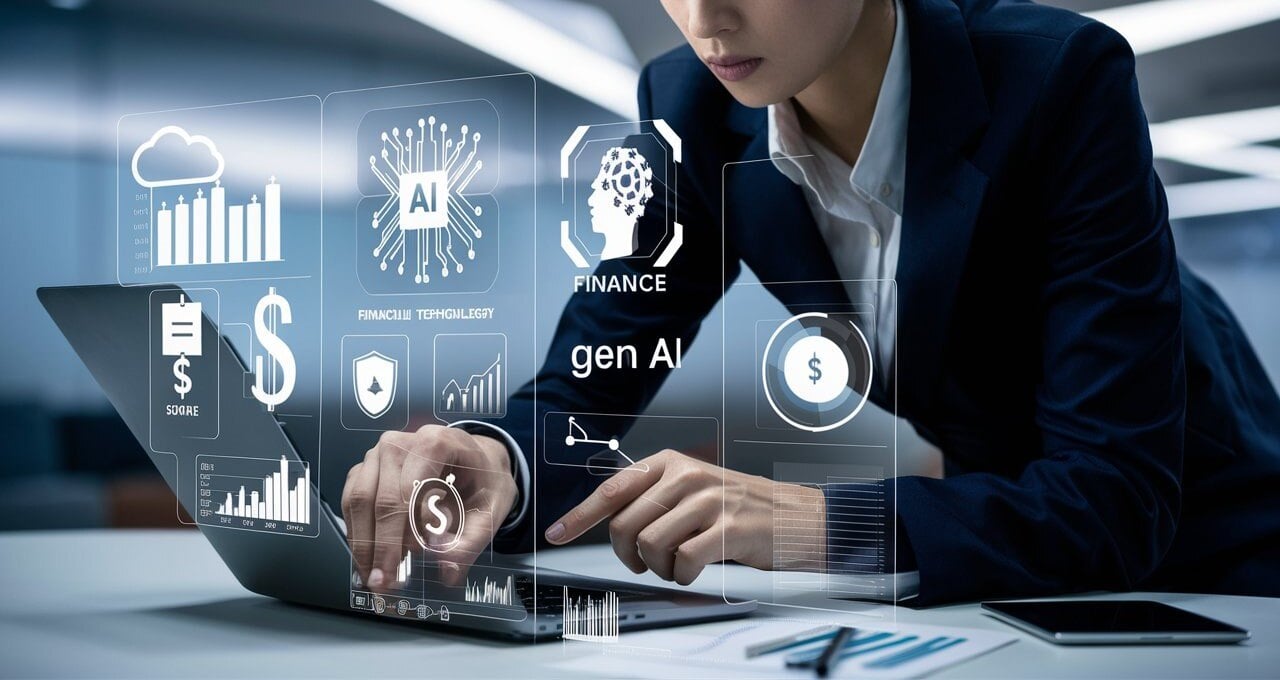In today’s rapidly evolving world, the integration of AI and finance automation is reshaping the financial sector. This transformation is not only enhancing the efficiency of financial services but also offering unprecedented opportunities for growth and innovation. The fusion of artificial intelligence with financial processes is creating a dynamic environment where data-driven decisions are the norm, and traditional practices are being redefined.

Understanding AI in Finance
Artificial Intelligence, commonly known as AI, refers to the simulation of human intelligence processes by machines. In the financial sector, AI is used to automate tasks, predict trends, and enhance decision-making processes. It is a powerful tool that allows financial institutions to process vast amounts of data quickly and accurately, leading to more informed and strategic decisions.
The Role of Machine Learning
A subset of AI, Machine Learning (ML), plays a crucial role in finance automation. ML algorithms learn from historical data to recognize patterns and make predictions. This capability is particularly useful in areas such as fraud detection, where algorithms can identify unusual patterns that may indicate fraudulent activity.
Benefits of Finance Automation
The integration of finance automation offers numerous benefits, including cost reduction, improved accuracy, and enhanced customer experience. Automated systems reduce the need for manual intervention, minimizing errors and ensuring that financial processes are streamlined and efficient.
Cost Reduction
By automating routine tasks, financial institutions can significantly reduce operational costs. This efficiency allows resources to be allocated to more strategic initiatives, driving innovation and growth.
Improved Accuracy
Automation reduces the likelihood of human error, ensuring that financial data is processed with high accuracy. This precision is vital for maintaining the integrity and reliability of financial transactions and reports.
Challenges of Implementing AI in Finance
While the benefits are significant, there are challenges that financial institutions face when implementing AI and finance automation. These include data privacy concerns, the need for skilled personnel, and the integration of new technologies with existing systems.
Data Privacy Concerns
The use of AI in finance involves the processing of vast amounts of sensitive data. Ensuring that this data is protected and used ethically is a major challenge for financial institutions.
Skilled Personnel
The successful implementation of AI requires skilled professionals who can develop and manage AI systems. There is a growing demand for individuals with expertise in both finance and technology.
The Future of Finance with AI
The future of finance is closely linked with the continued evolution and adoption of AI technologies. As more financial institutions embrace AI and finance automation, we can expect to see even greater levels of efficiency, innovation, and customer satisfaction. The potential for AI to enhance financial services is vast, and its impact is only just beginning to be realized.
AI and Blockchain Integration
The combination of AI and blockchain technology is another area of interest, promising to further revolutionize the financial sector. Blockchain provides a secure and transparent way to record transactions, and when combined with AI, it offers powerful capabilities for managing and analyzing financial data.
For more insights on the integration of these technologies, check out AI and Blockchain in Finance.

FAQs
What is AI in finance?
AI in finance refers to the use of artificial intelligence technologies to automate and enhance financial processes, improving efficiency and decision-making.
How does finance automation benefit banks?
Finance automation helps banks by reducing operational costs, improving accuracy, and enhancing customer service through faster and more reliable processes.
What are the challenges of AI in finance?
Challenges include data privacy concerns, the need for skilled personnel, and integrating new technologies with existing systems.
For a deeper dive into the implications of AI on financial stability, visit The Financial Stability Implications of Artificial Intelligence.






